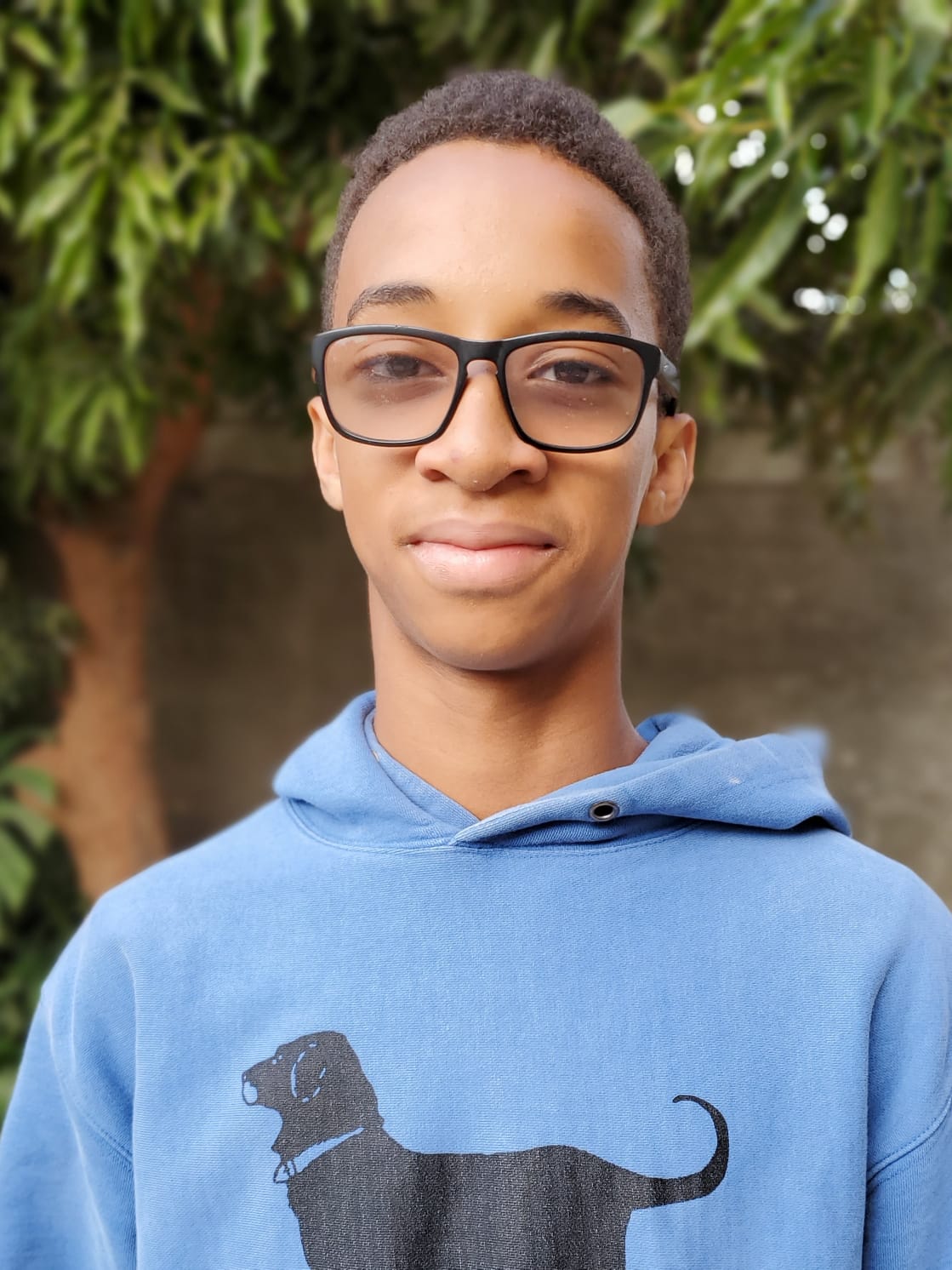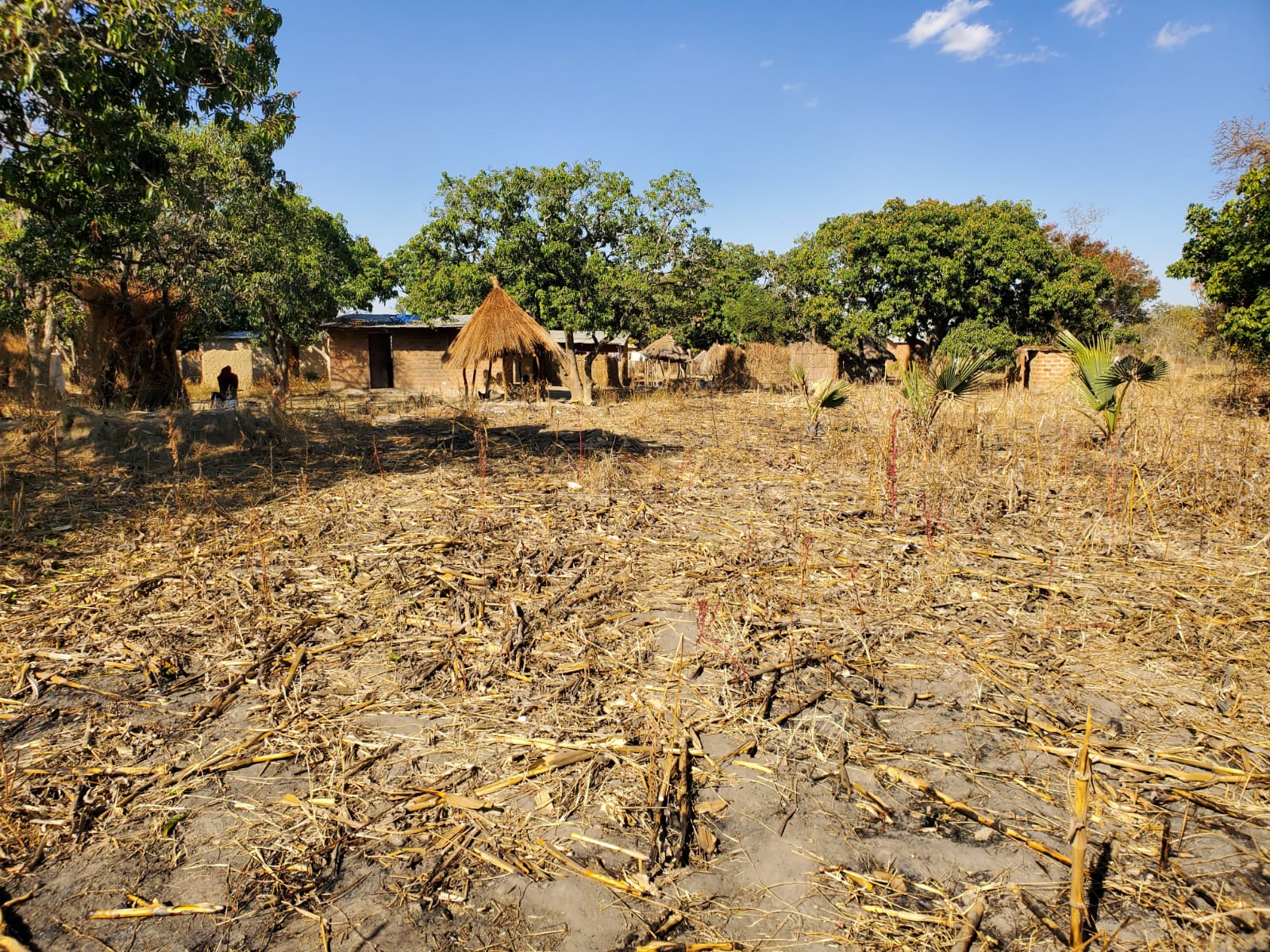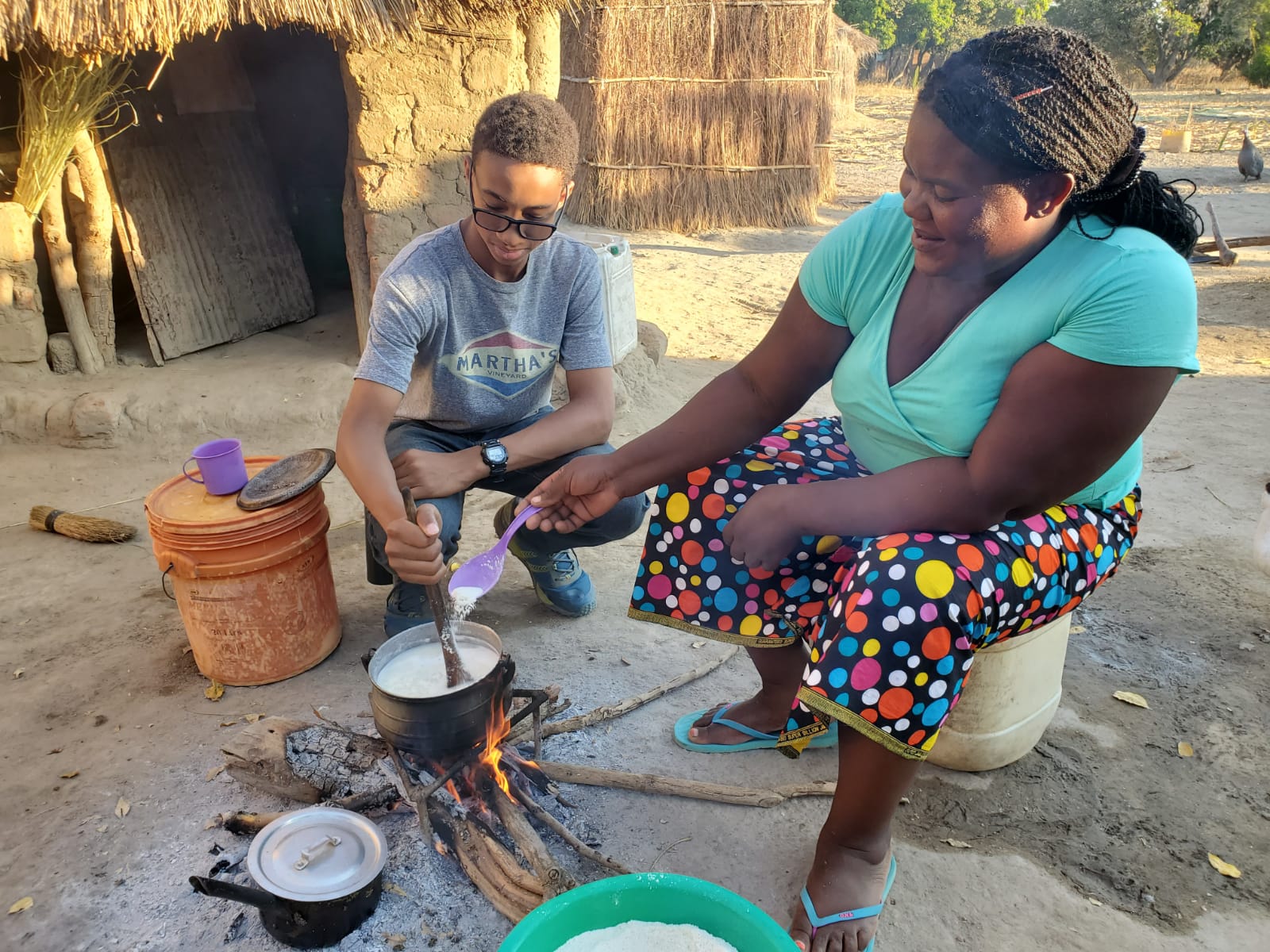
Today was the beginning of our trip from Lusaka to Livingstone and I was very excited to see what was to come. Lusaka definitely has a city feel and I was interested in seeing a different part of Zambia. I woke up around 5:00 AM to eat breakfast and get on the bus. The ride to the farm in Monze (about halfway to Livingstone) was only meant to take about three hours but due to road conditions and new speed traps, it took nearly five. While on the bus, I took notice of the changes in the landscape, watching as more trees popped up and fewer buildings. I also noticed more and more animals like goats, cattle, and even a zebra at one point.
Once we arrived at the campsite on the farm, I was happy to finally get off the bus and stretch my legs for the first time in hours. Once everyone was off the bus, we began to take a look at the boys’ and girls’ cabins. The girls due to their respectively larger group had a two-story cabin with a loft and a kitchen. The boys’ cabin was only one room with a bathroom with only two beds, meaning two of us would sleep on mattresses placed on the floor. I was a bit jealous of the girls’ cabin. They had a kitchen and plenty more space to move around in, as well as furniture. But our boys’ cabin ended up being a great place to bond, reflect, and have really great discussions. Shortly after eating some delicious food cooked by the staff we started our tour of the farm.
After the 20-minute walk spent avoiding cow manure, we finally arrived at the farm. I first took notice of the smell of the place, and how it became more potent as we got closer. I then noticed the dozens of pig pens from where the strong smell was coming. Here is where we met the farm manager, Kakwenya. He introduced himself and then spoke about the farm itself. He explained that the farm was home to 1,300 pigs and over 600 cattle in about 5,700 acres. He went on to say that the farm has been unprofitable for years due to climate change. He said that the farm used to grow crops as well as produce milk, but they’ve had to stop both activities due to the drought and lack of profit. He also explained that large corporations like the Italian milk producer, Parmalat (which is the milk we drank in Lusaka) can produce milk in bulk, having increased the cost of producing milk while keeping milk prices the same. So while they continuing to make millions, small dairy farms like the one in Monze are slowly going out of business. He also explained that there are normally seven-year drought periods which are now extending to nine years. The farm is only the second year of the seven or nine-year drought.

The farm looked very old — it had rusted machinery and old buildings covered in moss. Based on the look of the farm, it seemed incapable of lasting another seven years of drought. It was sad to realize this as Kakwenya seemed very devoted to the farm. Kakwenya explained that if things continue this way, he would not be able to keep up with the farm expenses. When he explained the situation the farm was in, it opened my eyes to how climate change has really affected those who depend on farming to make a living as well as feed themselves. It made me feel as though I should be much more environment-friendly in the way I live and to encourage others to do the same. I think that if everyone got to talk or even witness the life of someone like Kakwenya, it would help them realize the situation the world is in and hopefully inspire them to make changes that would slow down the effects of climate change.
So, now the farm depends mostly on selling cattle and pigs to survive. We made our way to a borehole that is used as a drinking station for cattle. As we watched the cattle come into the pen to feed, Kakwenya pointed out a group of sick cows in a separate pen and explained that he loses about 1% of his cows every year. He also mentioned that the cows are required to go to separate pens due to the lack of water that can be accessed through boreholes, which is also because of climate change. He then began talking about how he cannot afford the same new farm equipment that industrial farmers use even though it would save him money in the long run. Instead, he was dependent on older machines like one he pointed out dating back to 1969.
After talking to Kakwenya he led us to a primary school located on the farm called the Malambu School. Once we arrived we were met with open arms by the school’s teachers which consisted of four women. Some of the teachers taught multiple grades such as the one who taught grades five, six and seven. This meant that the students were not in school all day, five days a week but had to take turns coming to school in either the morning or afternoon, which was hard to imagine happening in the U.S.. After being introduced by the headmaster we were greeted by the students through song and dance.
We then broke up into groups to make dinner with our host families. I was paired up with Bilena and Luna because we share similar nut allergies. Our host family consisted of Pre-Kindergarten teachers. We were each given three bags of ingredients to cook Chiwawa (Pumpkin leaves), Lumanda (Okra) and ground nuts. We first introduced ourselves to the family and took a seat while she explained what everything was and what we would be making. One of the first things I noticed was the number of animals in the area. There were turkeys, chickens, ducks and four dogs roaming around the area. The area consisted of three houses made of clay bricks, straw roofs, and no electricity.

We first started by grinding up the ground nuts into dust and mixing it with the okra which was boiled. Pounding the ground nuts looks much easier than it is. It took much more strength than I thought it would once I tried it myself. After making the second batch of okra we made N’shima, a dish made of cornmeal and boiling water. Just about every dish in Zambia is comprised of N’shima, as it is cheap and fills you up very quickly. It was probably the most difficult to make because of how thick it becomes after absorbing the water, not to mention the continuous smoke blowing in my face.
After completing the N’shima we went in to one of the houses and sat eating the delicious food that we had helped to prepare. Being with this family really helped me understand more about the rural side of Zambia in a village setting where people seemed happier despite their lack of common items. After dinner we said our thank yous and goodbyes and made our way back to the campsite where we had a competitive game of Kemps.
Jermaine S., E.L. Haynes
